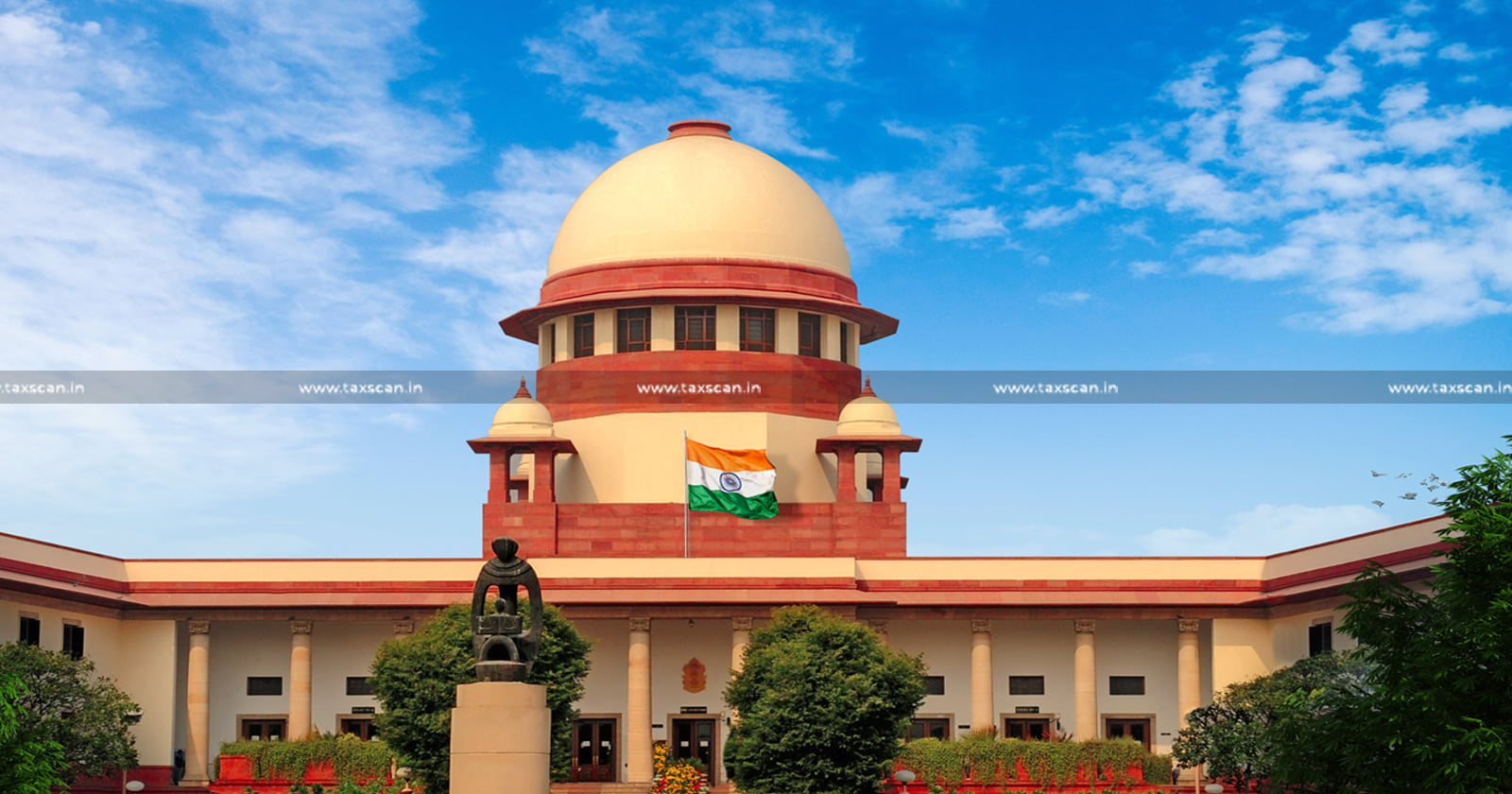Challenge on Applicability of Penalty under Amended Rule of M.P Foreign Liquor Rules: Supreme Court directs to Apply Amended Rule [Read Judgement]
The court held that the penalty to be imposed on the appellants will be based on Rule 19 as substituted on 29.03.2011

Supreme Court – Amended Rule in Madhya Pradesh – Madhya Pradesh – Foreign Liquor Rules – taxscan
Supreme Court – Amended Rule in Madhya Pradesh – Madhya Pradesh – Foreign Liquor Rules – taxscan
In the case where the challenge on the applicability of the Amended Rule in Madhya Pradesh (MP) Foreign Liquor Rules,1996, the Supreme Court directed to application of the amended rule. The court held that the penalty to be imposed on the appellants will be based on Rule 19 as substituted on 29.03.2011.
The two-judge bench of Justice Pamidighantam Sri Narasimha and Justice Aravind Kumar held that the penalty to be imposed on the appellants will be based on Rule 19 as substituted on 29.03.2011.
Pernod Ricard India (P) Ltd, the appellant is a sub-licensee under the M.P. Excise Act, 1915 for the manufacture, import and sale of Foreign Liquor, regulated under the Madhya Pradesh Foreign Liquor Rules, 1996. Sub-licensees importing Foreign Liquor are granted transit permits in which the origin, quality, quantity and point of delivery of the imported liquor are recorded. At the point of destination, the consignment is verified for quality and quantity, and a certificate under Rule 13 is granted.
Rule 16 prescribes the permissible limits of loss of liquor in transit due to leakage, evaporation, wastage etc. The purpose and object of this Rule is to prevent illegal diversion of liquor for unlawful sale and also to prevent evasion of excise duty. If the permissible limits of loss of liquor are exceeded, the 1996 Rules prescribe imposition of penalty. Rule 19 providing for penalties that could be imposed during the relevant license period of 2009-2010 was about four times the maximum duty payable on foreign liquor. An amendment introduced substituted Rule 19 reduces the penalty from four times the maximum duty payable to an amount not exceeding the duty payable on foreign liquor.
Eight months after the amendment, a demand notice was issued directing payment of penalty for exceeding the permissible limits during the license year 2009- 2010. The notice demanded a penalty of four times the duty as per the old Rule 19. The appellant replied, inter alia contending that penalty, if any, can only be under the substituted Rule 19 as the old rule stood repealed, and in fact, the demand is raised after the substituted Rule came into force.
The Deputy Commissioner rejected the objections raised by the appellant and confirmed the demand for payment of penalty at four times the duty payable. The Deputy Commissioner’s order was upheld by the Excise Commissioner and thereafter by the Revenue Board Gwalior.
On appeal, the Single Judge of the High Court was of the view that the new Rule was introduced by way of substitution and held that the old Rule stood repealed from the statute book and only the substituted Rule applies to all pending and future proceedings.
If the amendment by way of substitution in 2011 is intended to reduce the quantum of penalty for better administration and regulation of foreign liquor, there is no justification to ignore the subject and context of the amendment and permit the State to recover the penalty as per the unamended Rule. The subject of administration of liquor requires close monitoring and the amendment must be seen in this context of bringing about good governance and effective management.
The principle of Section 10 of MP General Clauses Act, 1957, relating continuation of a repealed provision to rights and liabilities that accrued during the subsistence of the Rule does not subserve the purpose and object of the amendment.
While rejecting the reasoning of the single Judge as well as the Division Bench, the court underscored the importance of a simple and plain understanding of laws and their processes, keeping in mind the purpose and object.
The two-judge bench of Justice Pamidighantam Sri Narasimha and Justice Aravind Kumar held that the penalty to be imposed on the appellants will be based on Rule 19 as substituted on 29.03.2011.
To Read the full text of the Order CLICK HERE
Support our journalism by subscribing to Taxscan premium. Follow us on Telegram for quick updates


